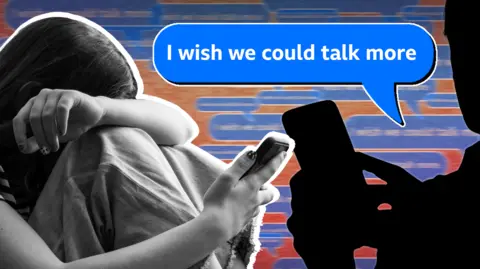In recent years, the issue of cyberstalking among children has become increasingly scrutinized and alarmingly prevalent. A BBC investigation has reported instances of children as young as ten and eleven being reported to police forces across England for suspected cyberstalking offenses. This situation raises serious concerns about the impact of a surveillance culture on the emotional and psychological well-being of young individuals. Safeguarding Minister Jess Phillips has emphasized the necessity of educating children on healthy relationships in the digital space, asserting that awareness and prevention are crucial components of addressing this growing issue.
Jess Phillips’s comments came as part of a broader conversation about the normalization of digital surveillance, often viewed as an act of care or protection. Parenting strategies that involve constant monitoring and location sharing can unintentionally set unhealthy precedents in a child’s future relationships. This reality has brought attention to the need for fostering discussions about consent, boundaries, and the distinction between healthy oversight and intrusive monitoring. Phillips stated, “We really need to be out there educating young people on what healthy relationships look like…”
Cyberstalking is not merely an online nuisance; it is a serious issue characterized by the harassment, threats, or dissemination of false information through digital channels. Like traditional stalking, cyberstalking can result in psychological trauma for victims. Phillips expanded on this definition, indicating that young people often misconstrue such aggressive behavior as flattering rather than harmful. This misunderstanding can impair their ability to recognize unhealthy interactions, amplifying feelings of anxiety and distress.
Charlotte Hooper, an advocate with The Cyber Helpline, provides a stark personal account of the mental toll cyberstalking can take. At the age of 19, she discovered her photographs were repurposed across explicit forums, leaving her feeling confused and vulnerable. More disturbingly, she noted how her experiences with cyberstalking began when she was much younger, reflecting a deeper trend of harassment targeting youth, which is often overlooked in public discourse.
Recent data highlight the concerning trend of young people becoming victims of stalking, revealing significant gaps in the understanding and research surrounding cyberstalking among individuals under sixteen. The Crime Survey for England and Wales indicates that those aged 16 to 19 are the most prevalent victims, yet the scope for younger demographics remains vastly unexplored. Organizations like Protection Against Stalking have observed a rising number of referrals from school-aged children, signifying that the issue is proliferating among even younger populations.
The desensitization toward digital surveillance also poses challenges. As young individuals engage with platforms like Snapchat—known for its location-sharing feature—expectations around privacy and consent may become blurred. Students have openly endorsed the routine sharing of their whereabouts, equating it to standard practice in their relationships. This mindset raises critical questions about the implications of normalized digital monitoring and reinforces behaviors that could foster stalker-like traits.
Experts contend that while location-sharing can be a safety tool, it must be approached carefully. Collett Smart, a family psychologist, emphasized that openness about consent in these digital interactions is crucial. Children and teenagers should view sharing as an option rather than a requisite for trust, paving the way for healthier future relationships.
The surge of cyberstalking incidents has compelled figures in law enforcement and academia to call for better data tracking and reporting of online offenses. Recent government measures, including the Right to Know guidance, aim to empower victims, ensuring they have access to their stalker’s identity amid the challenges associated with anonymity in the digital world.
In the face of this pressing issue, Jess Phillips and other advocates continue to stress the importance of recognizing and addressing the psychological and emotional facets of cyberstalking. It is vital to create a culture of awareness and prevention to safeguard vulnerable populations, ensuring that children can thrive in a world where digital interactions are commonplace without falling prey to the dark side of internet connectivity.



